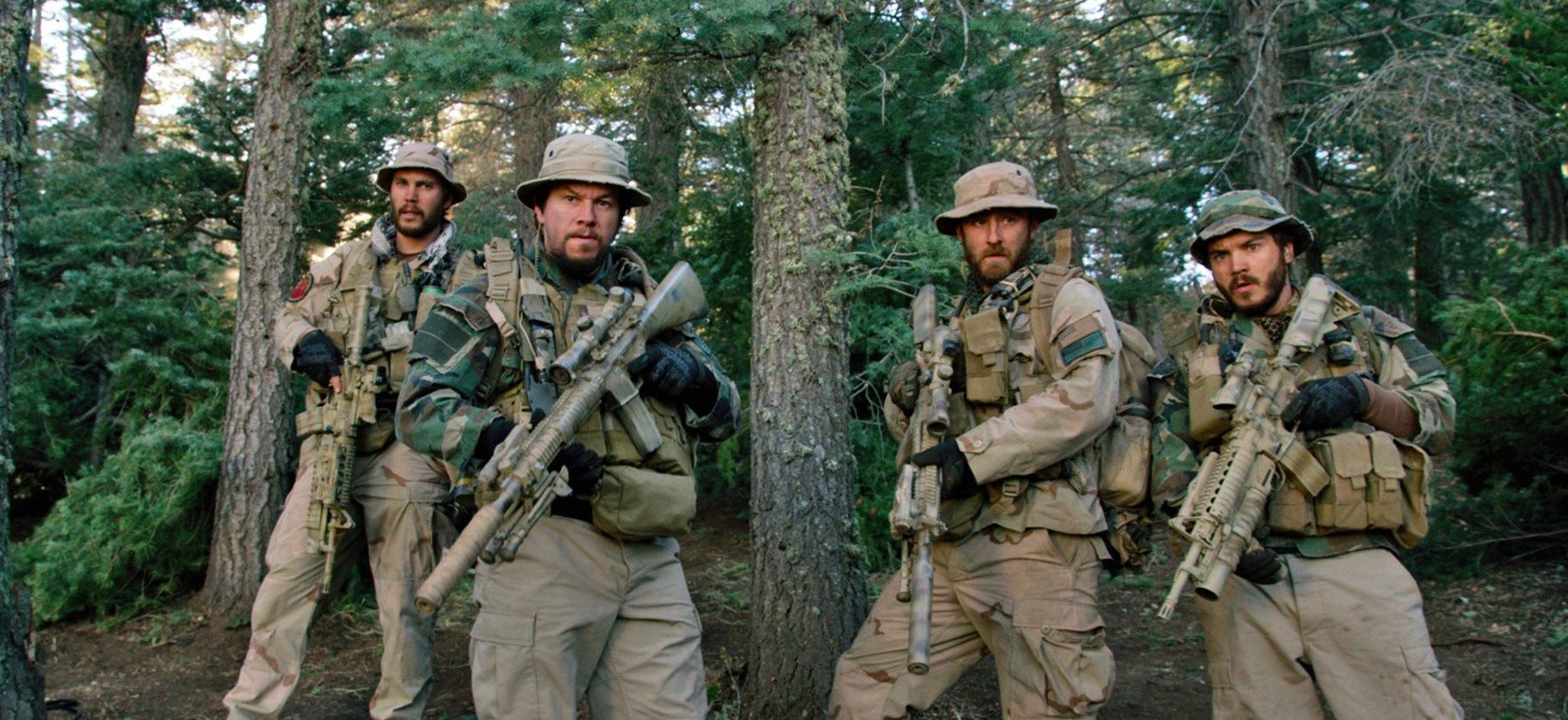Lone Survivor
Director: Peter Berg
Cast: Mark Wahlberg, Taylor Kitsch, Emile Hirsch
Length: 121 minutes
Country: USA
In 2012 director Peter Berg sloppily attempted to convert Hasbro’s Battleship into big-screen magic; the result was less than stellar. Despite moments of film-making promise (the underrated Will Smith vehicle Hancock remains a highlight) Berg has largely struggled to ignite a full-blown triumph during his speckled career, a streak that continues with Lone Survivor. Based on a ‘true life’ incident that occurred in 2005, Lone Survivor plays like a relentless love letter to the brave SEALs who undertook a cursed mission to extract a Taliban warlord, enduring an unending parade of pain and stress for their troubles. In the film’s extensive combat sequences (which dominate the middle-act) we get an unabashed feel for the intensity and heat of war, Berg bringing flair, energy and threat to his bombastic fire-fights. However when Lone Survivor pulls out from the fracas, it reveals a saccharine and generically assembled snoozer; one that has no problems ramping the jingoism and cartoony xenophobia up to 11.
Fronted by Marcus (Mark Wahlberg) and Michael (Taylor Kitsch), SEAL Team 10 is dropped into a remote Afghan location, the aim to capture a Taliban leader hiding in the hills. The group is only four strong (Emile Hirsch and Ben Foster make up the numbers) but they have a thick bond and resourceful pool of talents, the very reasons why Commander Kristiansen (Eric Bana) suspects the job will run untroubled. However when their tech falters and locals uncover their location, SEAL Team 10 quickly come under insurgent assault, trapped in the wilderness, isolated from infrastructural support and with only each other to depend upon.
It’s disappointing to watch the film lightly graze a point of genuine interest, before forfeiting it in exchange for a super-sized order of self-aggrandising slop.
The script is based on memoirs compiled by Marcus Luttrell, the man who spearheaded Team 10’s stoic resistance, so I suppose there’s more than a kernel of truth to what’s depicted onscreen. The attention to militaristic detail is certainly cause for recognition, Lone Survivor manoeuvres its actors believably and with an ear for digestible Navy rhetoric, creating a dominant and unfaltering sheen of basic accuracy. The combat sequences are also suitably intense, balancing comprehensible camerawork (not always Berg’s strong suit) and aggressive audio design to expose the turbulence of modern engagement – the soundscape is dominated by pulsating cracks of gunfire and fearful shrieks. Battle is grimy, bloody and defined by death, Lone Survivor articulates the facts with admirable levels of aesthetic fury.
However when Berg’s feature meanders from the ironic comforts of warfare, things get dicey. The opening credits roll alongside footage of the gruelling physical preparation SEALs undergo, and preceding the final scroll we are treated to a full-bodied photo montage of the story’s real heroes. In short, Lone Survivor is shot through and through with masturbatory flag-waving. This might be forgivable if the picture never threatened to alter its tone, but in one early and gamely acted scene it challenges the notion of the SEALs as selfless guardians of honour, before brashly and ill-advisably retreating. The screenplay seems at least half-heartedly aware of the ethical pressures field work can engender, but never finds a way to make them a pivotal cog in the greater whole. It’s disappointing to watch the film lightly graze a point of genuine interest, before forfeiting it in exchange for a super-sized order of self-aggrandising slop.
Despite a few (mostly Kathryn Bigelow helmed) exceptions, the war on terror has struggled to find its footing in Hollywood. Audiences haven’t hungered to see the conflict realised, leading to a slew of forgotten box-office rejects. Lone Survivor might appeal to America’s national pride more overtly than the competition, but it lacks a conscience. Where Bigelow’s Zero Dark Thirty painted the moral complexities of the situation with deft brush strokes, Lone Survivor just plasters crayon over the nursery walls; Berg is unable to see much beyond the action-tastic merits and apple pie values exhibited by the scenario. This comes across in the faceless and uncomfortable rendition of the Taliban – haunting the edges of frames with merciless, snake-eyed intent. The SEALs themselves aren’t particularly well defined (although Wahlberg lends the lead some innate movie star gravitas), but that’s more the fault of one dimensional writing. No effort is made to envisage the enemy as anything other than dangerous devils. The finale sees Luttrell glean aid from a selection of brave locals (whose Taliban-defying exploits sound much richer than Luttrell’s military narrative), but even they are just obvious shades of wholesome, as opposed to their unsubtly black-hearted equivalents. Lone Survivor offers some respectably deployed thrills, but it has the global awareness of a 9-year old. For me, that’s a problem.

Comments